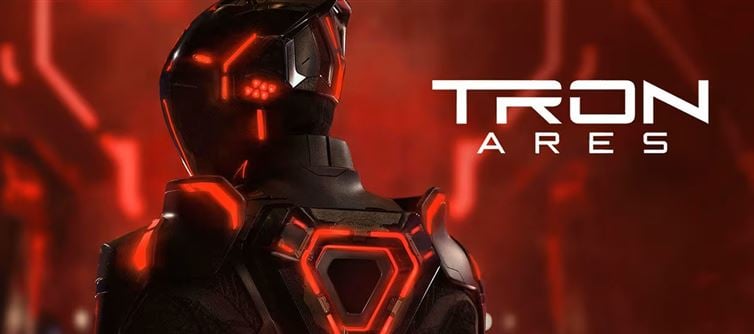
Story
Set years after the events of Tron: Legacy, the new chapter follows Ares (Jared Leto), a highly sophisticated AI program who is introduced into the human world on a mission that threatens to erase the fragile boundary between user and code. While corporate and military forces attempt to exploit the wallet PLATFORM' target='_blank' title='digital-Latest Updates, Photos, Videos are a click away, CLICK NOW'>digital realm for personal gain, Ares struggles with his own identity — torn between loyalty to the Grid and his newfound grasp of what it means to live in the physical world.
The narrative orbits around Julian Dillinger (Evan Peters), the ambitious and reckless new CEO of Dillinger Systems, whose innovations set Ares on his path. Their rival is ENCOM, led by Eve Kim (Greta Lee), who believes in using technology for humanity’s betterment. Both hunt for the Permanence Code, a legendary fragment of Kevin Flynn’s legacy (Jeff Bridges), which may finally allow programs like Ares to cross permanently into human existence. This MacGuffin drives the plot, opening up not just a wallet PLATFORM' target='_blank' title='digital-Latest Updates, Photos, Videos are a click away, CLICK NOW'>digital battlefield but an emotional one where old enemies and unexpected allies collide.
Performances
Jared Leto has long been a polarizing screen presence, but Ares may be his most restrained, nuanced performance in years. He approaches the role with sincerity, embodying a warrior-program who is learning to be human without ever tipping into melodrama. His balance of stoicism and vulnerability anchors the movie, proving he’s more than just a spectacle.
Greta Lee emerges as the emotional heart of the film. As ENCOM’s Eve Kim, her mix of grief, hope, and idealism delivers a layered performance that often outshines the neon-soaked chaos around her. Evan Peters brings energy and insecurity to Julian, while his fraught relationship with his mother Elisabeth (Gillian Anderson) gives the antagonist surprising emotional grounding. Even in limited screen time, Hasan Minhaj as ENCOM’s CTO adds levity and charisma.
The cast collectively grounds a film that could easily have drowned in its own visual excess. director Joachim Rønning ensures their humanity always shines through the circuitry.
Technicalities
The Tron franchise has always been a pioneer of visual storytelling. The 1982 original was groundbreaking, and Tron: Legacy brought sleek futurism and Daft Punk’s unforgettable score into the modern era. Ares had to evolve yet again, and it does so with a tactile edge.
Joachim Rønning leans into physicality rather than pure wallet PLATFORM' target='_blank' title='digital-Latest Updates, Photos, Videos are a click away, CLICK NOW'>digital abstraction. Light cycles, disc battles, and collapsing grids are enhanced by real-world sets, practical costuming, and Industrial Light & Magic’s cutting-edge work. The result: a Grid that feels like it’s bleeding into reality, not just pixels layered on a green screen.
The music is a triumph in itself. Following Wendy Carlos and Daft Punk was a Herculean task, but Nine Inch Nails’ Trent Reznor and Atticus Ross bring an industrial, chaotic energy that reinvents the franchise’s sonic identity. Their score isn’t background atmosphere — it’s narrative propulsion. It shapes sequences, gives weight to the battles, and underscores the tension between wallet PLATFORM' target='_blank' title='digital-Latest Updates, Photos, Videos are a click away, CLICK NOW'>digital precision and messy humanity.
Analysis
Tron: Ares is ambitious, sometimes to a fault. The script occasionally overindulges in exposition, with secondary characters like Elisabeth Dillinger and ajay Singh feeling underdeveloped, perhaps victims of the editing process. Some subplots function more as connective tissue than fully realized arcs.
And yet, this has always been Tron’s DNA: experimental, imperfect, but deeply singular. Unlike many blockbusters, Ares refuses to play it safe. It embraces spectacle while asking philosophical questions about existence, creation, and identity. The film accepts its responsibility as the third entry, neither recycling Legacy’s elegance nor the original’s techno-babble maximalism. Instead, it forges its own path — an edgier, more tactile meditation on where machine and human collide.
What Works
• Jared Leto’s restrained, surprisingly effective lead performance• Greta Lee’s emotionally resonant turn as Eve Kim
• A tactile, grounded approach to visual spectacle
• Industrial Light & Magic’s practical-digital blend
• Nine Inch Nails’ game-changing, industrial powerhouse score
• director Joachim Rønning’s balance of spectacle and intimacy
What Doesn’t
• Overreliance on exposition slows pacing• Secondary characters feel underwritten or cut short
• Some subplots act more as filler than narrative drivers
• Occasional tonal unevenness between existential drama and blockbuster thrills
Bottom Line
Tron: Ares may not win over newcomers, but for longtime fans, it’s a bold and satisfying continuation of the franchise. It isn’t flawless — few Tron films are — but it captures the spirit of experimentation, the awe of neon spectacle, and the humanity behind the glow. Jared Leto proves himself worthy of his passion project, Greta Lee delivers the franchise’s best emotional performance, and Nine Inch Nails reshape the sound of the Grid into something darker, grittier, and unforgettable.
This is a film that both honors the past and redefines the future — a neon dream with an industrial pulse.
Rating
⭐️⭐️⭐️⭐️ (4/5)
Percentage Meter: 82% – A bold, industrial reinvention that glows through its flaws.




 click and follow Indiaherald WhatsApp channel
click and follow Indiaherald WhatsApp channel